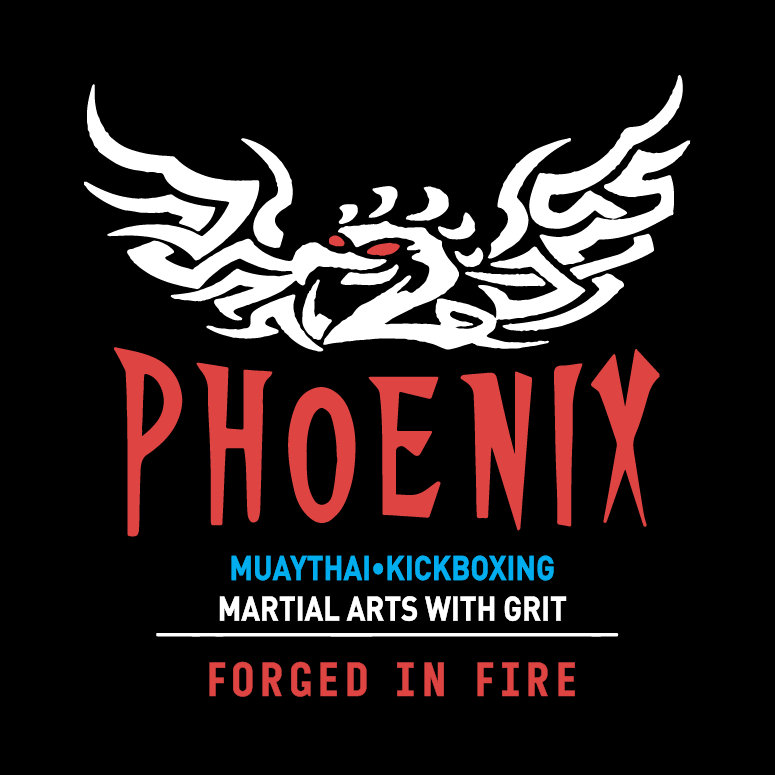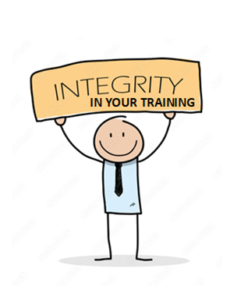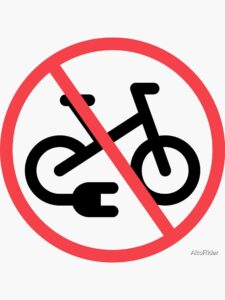Why it is so hard to Judge Muay Thai fights consistently? Everyone is biased.
Everyone has a bias, that’s why! Then there are various rulesets that have equally varied interpretations that are compounded by very little formal & consistent training.
This is a 2-part article.
- Biases and how they subconsciously affect everyone’s view of a bout.
- The scoring rules of sanctioning bodies compared and training of judges.
Part 1 – Everyone has a bias – what are yours?
Wherever you have humans deciding, you have biases. You get more than one human deciding, you get an exponential amount of bias. Bias can be overcome with understanding, training, and awareness but it can also be exasperated by entrenchment and fester and grow if unchecked.
This article outlines 3 specific aspects of decision making relating to judging a fight. The rules, the training of officials and their biases. Trainers and fighters also need to know how to score a bout, understand their biases and increase their understanding of the judges’ biases and how they differ from their own. Spectators love predicting the result and more understanding of their own biases and expectations will help them understand the result. I will also divert off topic and delve into my opinion from experience and a view from outer space.
Everyone should read and consider this article. Unfortunately the people who won’t read it are those with an established bias already and no amount of education will adjust their view. That is the problem with ignorant bias syndrome and inability to critically self-assess. For those that are willing to at least consider and understand, this article could actually improve judging for everyone.
Judging matters. Coaches need to understand judging and scoring to train fighters to win. What the spectators see and think matters, as they buy the tickets and keep the sport going. We need a high proportion of the crowd, the coaches and the fighters getting the same result as the judges in order for the sport to appear fair and credible.
You compete long enough; you will get a bad decision (perceived or real). If the balance is lost, trainers and fighters get disillusioned, and the crowd will drop off. Not always all three, as each promotion is promoting their brand and as long as that brand has spectators, the trainers and fighters will adapt to be on that brand. One FC, Glory, K-1, all have different scoring. We don’t have to agree, just understand what the scoring is and understand the biases involved. This article will look closer at the specific sanctioning body rules in Australia and how they differ and how even the same sanctioning body differs in ‘interpretation’ around Australia.
Muay Thai is not one sport with one set of rules. Often people think they know the rules as if it is tennis, but like all biases the more someone professes to know, the less prepared they are to learn and realise that every sanctioning body has different rules, different scoring, different training (if any) and their judges have different developed biases that began to develop way back when they started training and have grown as they steered towards being an official for a particular body or promotion.
Rules: The Thai Boxing Authority has a set of rules. If everyone followed the same rules, we may have a better basis for consistency, in at least opinion. For Muay Thai that is the bible, but it has many spin offs with as equally zealous followers. Every sanctioning body has their own rules and anyone who thinks they are the same is displaying ignorant bias. Scoring and interpreting rules is another step again and is also not consistent.
The role you play affects your view as well and how your biases play into your view. Each judge sits in a different spot, watching a different fight. As do the trainers and the crowd. The promoter has a view they want to display, and the crowd wants to see their fighter, the way they perceive (or hope) it will go. Muay Thai from the start has made it hard to have everyone agreeing (unless it is a KO) based on view, distance from bout, (live or TV), and what you are looking for.
Promoters pick a sanctioning body that best suits their promotion and business and the view they want of the fights to sell tickets. That bias is perhaps the most obvious one. It filters down to who they pick to judge, what fights they match and the expectations they are trying to meet – factors that will affect the scoring through the placement of an attempt to control bias that will also have the effect of reinforcing bias. There is not one sanctioning body that has no control over who judges, or one that has complete control over which judges are used for a show. I am not downplaying the ability, experience and proven performance of the judges that are selected. It is just a factor to be considered that bias is an integral part of every judge’s decision, and the judges are only a part of the entire bias chain.
What is Bias.
From Wikipedia – “Individuals create their own “subjective reality” from their perception of the input. An individual’s construction of reality, not the objective input, may dictate their behavior in the world. Thus, cognitive biases may sometimes lead to perceptual distortion, inaccurate judgment, illogical interpretation, and irrationality.
What are biases?
A bias is not negative, it is just part of decision making. If you only make decisions with your gut and emotions, you will always use more bias. Rational decision takes time, mental energy and consideration and we often don’t like to spend the energy doing it. Judges (pilots etc.) must make decisions following a process, and the more experienced they are the more they can speed up their decisions – but there is also a risk of bias occurring, especially if emotional, or they have a vested interest in the decision.
The point is to be aware of your biases and consider them as a factor of your decision-making process.
There are many types of biases to be aware of.
What could affect your biases in relation to judging a fight.
- Where you first trained and your first impressions of the sport.
- What you have won (had success at) or seen people win doing.
- What you have been trained to do.
- What you like doing or seeing in fighters’ styles.
- What scoring or formal training you have had with your first training course and subsequent influences.
- How long you have been watching fights, formally or informally.
- What style of fighting you prefer to watch/do.
- What the people around you like to see, so you can fit in.
- What you are looking for in style, based on what you prefer to see or expect to see.
- What you have got correct before you will lean towards again. Positive reinforcement.
- What suits your bigger agenda. Winning, tickets sales, betting, judging again etc
- Your expectations of a fight.
- What you want to see displayed (performance view vs actual point scoring)
- What technical preference or style you have in your own training, your own club or has been displayed before by other judges or requested by promoter.
- If you are subconsciously looking for something that you consider more valuable.
- If you have been, or currently are a fighter / trainer and your preferred style.
- What you consider effective, clean, damaging, scoring and how that differs in size and weight to the actual fighter compared to your own experience.
- Historical experience with people or bodies and a reluctance to shift position.
What are the biases most studied and prevalent in all of us that will affect judging a fight (and your life).
I will briefly overview and give examples for each one. If you find it hard to think of your own, imagine people you know and you will be able to easier identify their biases.
Implicit bias. Stereotyping and unconscious biases. You think a Thai fighter or someone from a certain gym is just going to be better trained and better at Muay Thai before the fight starts. You think tall skinny fighters have an advantage. You got hit hard once from a rib kick and score them higher than a solid punch. You don’t like cocky fighters and think less of the show boating fighter due to ring antics. You could have a subconscious bias against a colour of a pair of shorts and not favour that colour. You prefer certain style of fighter and lean that way in opinion giving more weight to the score for one style when it is actually very even.
This is a long list but the easiest bias to analyse for yourself.
Priming bias. When you are influenced by your first training, first fights and first experiences that built your foundations and passion for the sport. The style of your gym, your fights and you will look for reenforcing that style over a preference for the other style, regardless of the scoring rules.
Confirmation bias. A scoring tendency to look for things that confirm your own preconceptions over anything that doesn’t, despite what is happening in front of you. Everyone does this, everyone has first impressions they rely on. Everyone wants to be right and look for things to be right about and not agree immediately on things that could prove you wrong. This could only be minor but in close fights it can be what makes you lean one way.
Affinity bias. Favouring people more like you, or that you want to like you. Agreeing with people because they will agree with you, or you want them to like you or need something from you. You are likely to agree with your current trainer and disagree with an ex-trainer before you even start a conversation. You are also likely to agree with the promoter if you want to be on that show again.
Self-serving bias. How does this benefit me? Tendency to look for information that will prove you right and discount anything or criticise anything that doesn’t support your view even if obvious or worthy of consideration. Trainers do this by claiming credit for victories but blaming fighters or judges for loses.
Belief bias. You look at the conclusion and don’t give credit to arguments against it because your beliefs already align. You think someone is better than someone else, or a gym is better than another, you think a Thai is going to better than a foreigner at Muay Thai due to style and you already situate the result because of your beliefs and need to reinforce them.
Framing bias. looking for specific things to ‘frame’ your view and result. Not looking at everything and all aspects of scoring over what you think is more effective. Just not scoring jabs that turn a head back and make a nosebleed over two clean rib kicks that although clean do not stop the forward progression or pace of the fighter. You’re shaping your view by framing what you think scores. Rib kicks to arms that are blocked and countered with no damage to the arms over the fight often get scored more than a strong counter or the block because of a perception of how effective rib kicks are in comparison to a strong leg kick. Thai boxing has a long history of scoring kicks more effective than boxing when it is more effected by gambling than the lack of effect of good boxing.
Hindsight bias. You view past events as predictable for future events. Preset your expectations.
Anchoring bias. This is when you find it hard to adjust as the fight progresses based on the start of the fight, especially if the first round meets your preconceived bias already. This can seriously affect decision making.
Status Quo bias. A tendency to not be able to adjust to new events or new information because you prefer the original situation. You prefer your original training or the way the sport was or think it was when you started. Effects a preference for what you already like being repeated.
Physical appearance bias. This is obvious. You prefer the ‘look’ of a fighter. This can be a belief that a fitter, muscley looking fighter will be stronger over a less muscly fighter. We all know body builders can’t fight like lean tough fighters, but we still can think the muscles will be more powerful in the fight. It shows hard training and preparation however it may not be sport specific conditioning and be from another sport. Can also relate to tattoos looking tougher, or a haircut.
Over confidence bias. That you get every fight right so you can’t get this one wrong. That your decisions are going to be correct, so you don’t have to analyse them and consider them every time based on the merits of the situation. Fast decisions can be required in emergencies but judging a fight is not a gun fight or surgery and you should have time for a rapid decision evaluation.
Collective Bias. There are many people that associate with likeminded people to develop an ‘echo chamber’ of beliefs by surrounding themselves with people who they agree with. This develops a group bias and makes it harder for anyone observing/criticising or seeing the bias developed by the group and wishing to contribute for the purpose of improvement and awareness. It takes a strong group to face up to their bias and learn and adapt through awareness. Businesses have to do this to survive however it becomes less likely in sport and small communities. It is enhanced exponentially by Social Media.
Muay Thai is not immune to this and if you disagree strongly, you are in fact, living in your own echo chamber. You only have to look at the differences between states, sanctioning bodies and the vast number of developed cliques in the sport that fragment it and do not come together for the greater good of one sport, one set of rules, unified training for officials and a non-biased (or awareness of bias) inclusive overview of peoples experience and opinions.
Conclusion
For your own growth, consider each bias and try to become more aware of your own. There is no need to feel negative or defensive about it, we all have them. It can just help in dealing with people to understand your own bias and that of people you work closely with. Judging a close fight with diverse style can be extremely difficult and we all must have respect and empathy for judges in a difficult position. For them, it is not always certain and requires great consideration in a short period of time with consequences greater than that of any spectator.
Appendix.
- Disclosure of my own biases.
My own Bias in Muay Thai.
I come from a background of traditional martial arts as a kid. I trained and competed at Kickboxing first with 20 fights before doing Muay Thai. Although exposed to Thai boxing in Thailand and competing there in 1990, my local environment did not facilitate Thai boxing training. I opened my own club and focused on kickboxing then Muay Thai. I have never trained extensively at a ‘traditional’ Muay Thai club, I do not have a long-term Thai trainer. I have trained in Thailand over 30 times and have extensive experience at Thai clubs and bringing Thai trainers to my own club to coach, live with me and share knowledge. I have had students compete in Thailand on a few locations and compete in many countries worldwide.
I have been on the MTA board as President, General Secretary, and a coach. I have been to numerous IFMA world junior and senior championships. I have watched K-1 live in its hay day and loved the action. I do not speak Thai; I have not adopted aspects of Thai Boxing to exist with my training and have never taught my students to do the Ram Muay because I never had a Thai trainer pass it on to me. I love Thai Boxing but am realistic about the darker aspects of Thai boxing including gambling, organised crime, corruption exploitation of athletes and have never had a romantic view about the sport.
I love watching One FC and believe it is changing the sport because of the audience size and $$$. The quality of fights, the money and the fast paced brutality of it is enthralling. I do not see a difference between traditional and entertainment as some commentators explain. I think this is an unnecessary distinction and rather disingenuous. All Thai Boxing events sell tickets to watch and always have. I like the adaption of no Thai music, limited clinching, no Ram Muay, non Thai judges, damage-based, attack-based and clear understanding of scoring system One has developed. I don’t like the 4oz gloves though, or the damage the fighters receive for the $ and fame. I also hope it transition back to more kicks and better Muay Thai style away from the overuse of hands for KO bonuses that I see developing. What does your own support of One FC, (when they re-define Muay Thai) but have changed the rules and the traditional aspects say about your own biases?
I think Muay Thai in Australia is great and bigger and better than ever. There is too much fragmentation though and everyone needs to compromise a bit to go to another level. I hate slow paced fights where the withdrawing fighter wins with a few well-timed kicks but spends most of the fight waiting and not interacting aggressively. I don’t think this will help grow the sport and shows a bias towards a certain style that gives credit to evasive and defensive skill over, (at times even the scoring system) the person trying to actually make the fight. I think too many people score a fight with a preference towards the style they want to see and always give extra credit to a Thai because of style over scoring and history of their fights rather than the actual event happening in real time. Rib kicks are not worth 1000 points in any scoring system and no technique is singled out as scoring higher, yet this type of bias is persistent and only based on a bias towards a technique/style. I am the reverse of this, and my own bias makes me favour the person trying to win aggressively. I can still see clear and effective shots. People often mix up clean shot with effective shot and have a different opinion of effective. I am not Thai and have never pretended to be or tried to adopt aspects of Thai culture or ‘look’ to make me appear more credible, when it is not in my background, and I have no right to.
I read the rules, I have done WMC, WKA, ISKA, MTA, IFMA judging courses. I wrote the current MTA ruleset by adapting the WMC and IFMA rules to suit Australia’s legislative requirements. I have a bias, but I also take time to read rules and understand them which gives me another bias.



